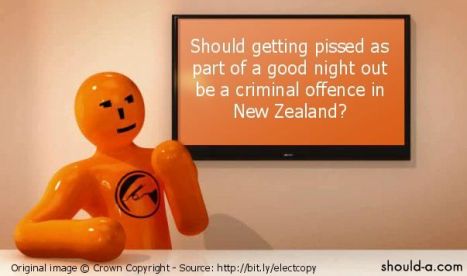On September 5, 1989, President Bush, speaking from the presidential desk in the Oval Office, announced his plan for achieving “victory over drugs” in his first major prime-time address to the nation, broadcast on all three national television networks. We want to focus on this incident as an example of the way politicians and the media systematically misinformed and deceived the public in order to promote the War on Drugs. During the address, Bush held up to the cameras a clear plastic bag ofcrack labeled “EVIDENCE.” He announced that it was “seized a few days ago in a park across the street from the White House” (Washington Post, September 22,1989,p.A1). Its contents, Bush said, were “turning our cities into battle zones and murdering our children.” The president proclaimed that, because of crack and other drugs, he would “more than double” federal assistance to state and local law enforcement (New York Times, September 6, 1989,p.A11). The next morning the picture of the president holding a bag ofcrack was on the front pages of newspapers across America.
About two weeks later, the Washington Post, and then National Public Radio and other newspapers, discovered how the president of the United States had obtained his bag of crack. According to White House and DEA officials, “the idea ofthe President holding up crack was [first] included in some drafts” of his speech. Bush enthusiastically approved. A White House aide told the Post that the president “liked the prop….It drove the point home.” Bush and his advisors also decided that the crack should be seized in Lafayette Park across from the White House so the president could say that crack had become so pervasive that it was being sold “in front of the White House” (Isikoff,1989).
This decision set up a complex chain of events.White House Communications Director David Demarst asked Cabinet Affairs Secretary David Bates to instruct the Justice Department “to find some crack that fit the description in the speech.” Bates called Richard Weatherbee, special assistant to Attorney General Dick Thornburgh,who then called James Milford, executive assistant to the DEA chief. Finally, Milford phoned William McMullen,special agent in charge of the DEA’s Washington office, and told him to arrange an undercover crack buy near the White House because “evidently, the President wants to show it could be bought anywhere” (Isikoff,1989).
Despite their best efforts,the top federal drug agents were not able to find anyone selling crack (or any other drug) in Lafayette Park,or anywhere else in the vicinity of the White House.Therefore,in order to carry out their assignment, DEA agents had to entice someone to come to the park to make the sale. Apparently,the only person the DEA could convince was Keith Jackson,an eighteen-year-old African-American high school senior. McMullan reported that it was difficult because Jackson “did not even know where the White House was.”The DEA’s secret tape recording of the conversation revealed that the teenager seemed baffled by the request: “Where the [expletive deleted] is the White House?” he asked. Therefore, McMullan told the Post, “we had to manipulate him to get him down there. It wasn’t easy” (Isikoff,1989).
The undesirability of selling crack in Lafayette Park was confirmed by men from Washington,D.C., imprisoned for drug selling, and interviewed by National Public Radio. All agreed that nobody would sell crack there because,among other reasons, there would be no customers. The crack-using population was in Washington’s poor African-American neighborhoods some distance from the White House. The Washington Post and other papers also reported that the undercover DEA agents had not, after all, actually seized the crack, as Bush had claimed in his speech. Rather, the DEA agents purchased it from Jackson for $2,400 and then let him go.
This incident illustrates how a drug scare distorts and perverts public knowledge and policy. The claim that crack was threatening every neighborhood in America was not based on evidence; after three years ofthe scare, crack remained predominantly in the inner cities where it began. Instead, this claim appears to have been based on the symbolic political value seen by Bush’s speech writers. When they sought, after the fact, to purchase their own crack to prove this point, they found that reality did not match their script. Instead of changing the script to reflect reality, a series of high-level officials instructed federal drug agents to create a reality that would fit the script. Finally, the president of the United States displayed the procured prop on national television. Yet, when all this was revealed, neither politicians nor the media were led to question the president’s policies or his claims about crack’s pervasiveness.
Filed under: quotes, sociology | Tagged: drugs, healthism, ideology, indoctrination, moral panic, political science, politics, prohibition, symbolic politics | 3 Comments »



